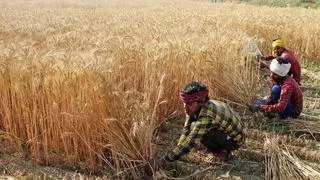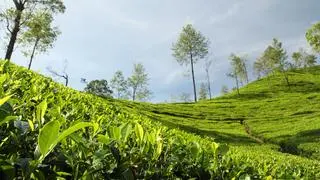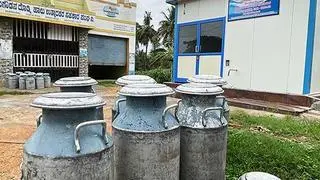The challenges and prospects before Indian agriculture, including the impact of climate change on yields and lack of research on genetic breeding, were discussed at length at a conference organised by the Andhra Pradesh chapter of Confederation of Indian Industry here on Saturday.
Food grain productivity had remained stagnant in the last decade, with a compounded annual growth rate of about one per cent during 2001-10, as against 2.4 per cent during 1991-2000. Also, share of public investment in agriculture has been falling — it has fallen from 13 per cent during the Green Revolution to six per cent now.
Mr V. Nagi Reddy, Principal Secretary, Department of Agriculture, Government of Andhra Pradesh, said capital was the biggest limiting factor in realising the State's potential for agricultural production. “Though [a] Malthusian crisis is looming large in the world, as far as AP is concerned, we still have some land that can be used for agricultural production,” he said. He, however, expressed concern that contract farming could not make much headway in the State.
Dr Arjula Reddy, Co-Chairman of Genetic Engineering Approval Committee, felt that only genetically-modified crops could increase yields in the future.
On Bt brinjal, he said the issue was “not yet shelved”, and “there is still hope”. There will be meetings beginning April 2011, following which a decision will be taken on Bt brinjal, he said.
Several speakers pointed out how variable monsoon as an upshot of climate change was reducing yields in regions in India, especially in Uttar Pradesh.








Comments
Comments have to be in English, and in full sentences. They cannot be abusive or personal. Please abide by our community guidelines for posting your comments.
We have migrated to a new commenting platform. If you are already a registered user of TheHindu Businessline and logged in, you may continue to engage with our articles. If you do not have an account please register and login to post comments. Users can access their older comments by logging into their accounts on Vuukle.